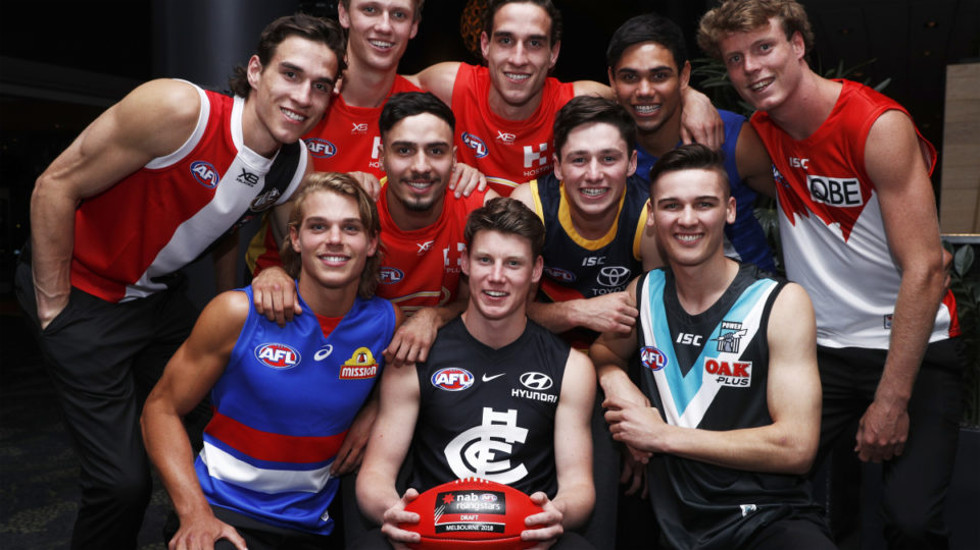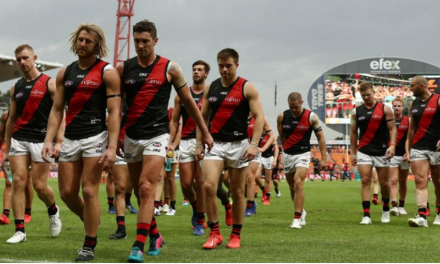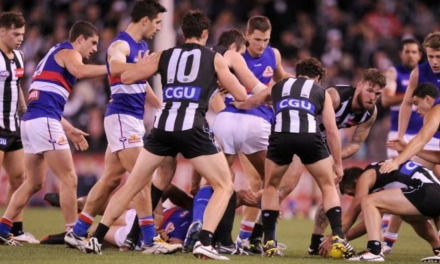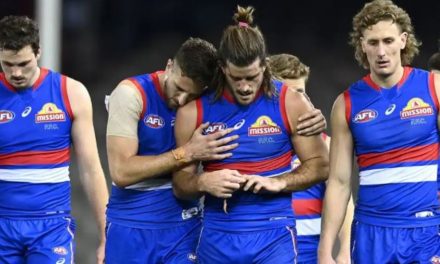The top 10 from last year’s AFL national draft, already familiar with the pressures of potential stardom. Photo: AFL MEDIA
Mental health struggles among elite athletes in the AFL system are unfortunately becoming an increasingly common issue, but what is being done to aid the future stars of our game at junior levels?
The national under 18 NAB League competition (formerly known as the TAC Cup) is the primary source of AFL draftees and plays a vitally important role in the development of talented youngsters on and off the field.
Sandringham Dragons talent manager Mark Wheeler has spent the last 12 years in the elite under 18 football pathway, having previously been at the helm of the Dandenong Stingrays. He’s seen it all.
Wheeler’s primary concerns for the mental health of young footballers is the ever-increasing rates of anxiety – which he expects to continue – intensified by the rapid expansion of media coverage focusing on the next wave of household names.
“I think anxiety has taken over a lot mostly because they’re under the spotlight a lot more,” he says. “The more that we promote our young boys and our young girls, the higher the mental health issue is going to get,” Wheeler said.
“We’re raising the bar a little bit on expectations, so it’s really important that we have the staff we have to help us in that area.
“The thing I worry about is I always tell our players not to consume footy 100 per cent of the time because your brain will explode. I still want our boys and girls to have social time, so that’s my main concern. If they’re all in the media from 16 or 17 years old, when do they get their time away?”
The Sandringham Dragons, much like the rest of the NAB League, employ a fully-qualified sports psychologist, who sits down one-on-one with players to discuss stress, workload, school/work commitments etc., as well as a “sports chaplain”, who oversees player welfare.
On top of this, all players are required to login to an online database daily to record their emotions, sleeping patterns and diet, among other areas, so the club can identify any potential red flags and address them promptly.
Parent information sessions on how to handle children athletes have been introduced, covering everything from what to say to kids after a game to how to balance sport and education.
This approach is in stark contrast to years gone by, where players, and people in the community for that matter, suffered in silence as mental health issues ate away at them.
“Twelve years ago, depression and anxiety was all swept under the carpet a little, even the coaches back 13-14 years ago said: ‘Toughen up son, that’s how I did it’,” Wheeler says.
“That model’s gone. I haven’t heard any staff for many years say anything like that … they’re now directed straight to the people that have that expertise.”
Despite the vast improvement in dealing with these issues in under 18 football, Wheeler remains adamant that more can and will be done in years to come.
“I think we’re at the minor end of what can be done,” he says.
“We rely on outsourcing, so SALT (Sports and Life Training), Beyond Blue and Headspace and other organisations are really important for us. It’s a lot better than we’ve ever had, so I think we’re heading in the right direction, but we can continue to do more.”
“This year we’ve added more sessions with SALT for players and even our parents, along with the AFL employing a full-time wellbeing person to help coordinate and advise each region, so we are in front of the curve instead of playing catch-up.”
AFL club recruiters are also placing a more substantial emphasis on the mental health and fortitude of potential draftees as the landscape’s professionalism continues to heighten, interviewing players on as many as six or seven occasions to gain a firm understanding of their character.
Recruiters speak to everyone from property stewards and team managers to high school science and humanities teachers to reassure their perception of a draft hopefuls drive and compliance, interestingly, avoiding physical education teachers, as they might have a skewed outlook due to the player’s obvious ability during sports sessions.
“They (AFL recruiters) definitely want to see them (draft prospects) be stable – that they’re committed to a school program and trying to get an education or committed to a working program and trying to get their life sorted and not put all their eggs in the basket of being an AFL footballer,” Wheeler says.
“They do background checks on mum and dad and all their friends. You spend $250,000 investing in these players over a couple of years, so you want to make sure of the player you’re getting.”
Football at all levels has clearly taken significant steps forward in the treatment and acknowledgement of mental health and is a focus that’s only set to increase, particularly as the under 18 competition expands nationally.











